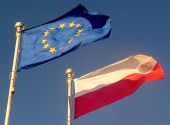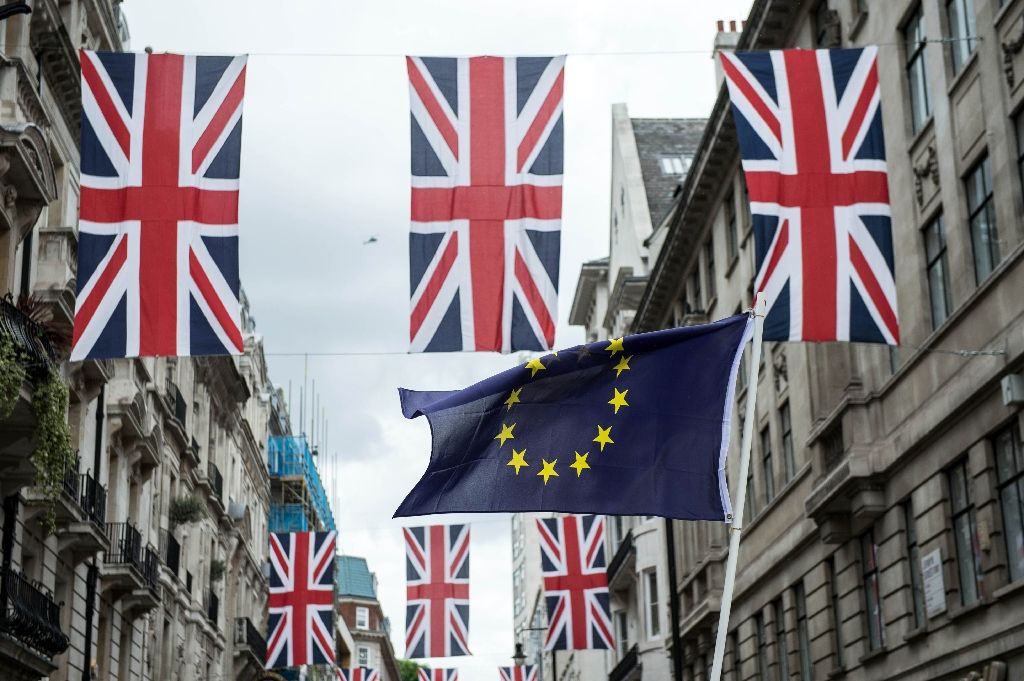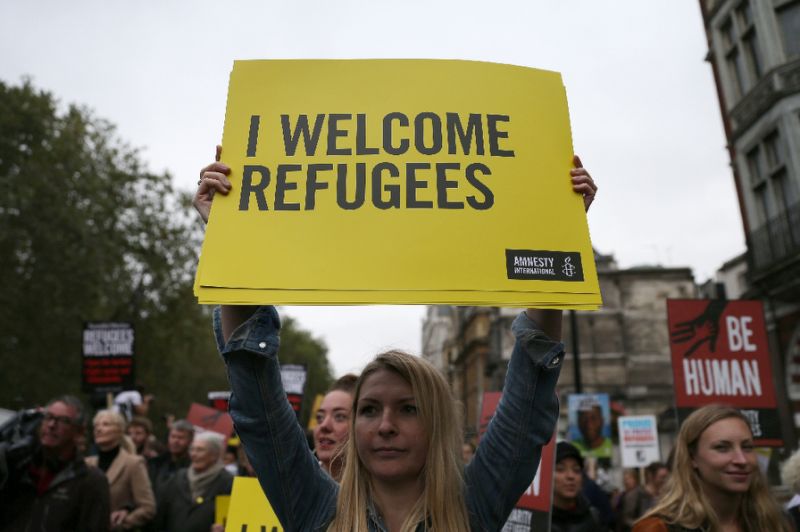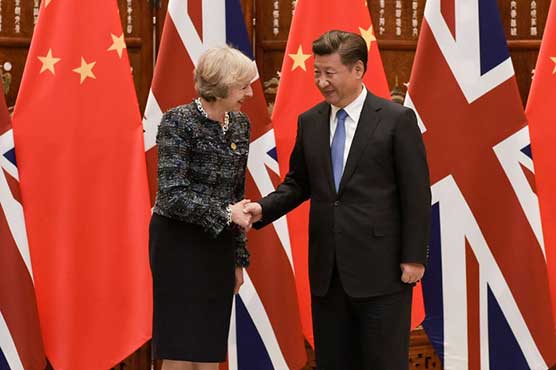
Entertainment
-
 Greece introduces ‘MyCoast’ App to tackle beach violations
In an effort to enforce newly implemented stringent beach regulations, Greece has launched the ‘MyCoast’ app, empowering users to report beach violations effortlessly.03 May 2024Read More...
Greece introduces ‘MyCoast’ App to tackle beach violations
In an effort to enforce newly implemented stringent beach regulations, Greece has launched the ‘MyCoast’ app, empowering users to report beach violations effortlessly.03 May 2024Read More... -
 European Court of Human Rights rejects Kirkorov’s case against Lithuania entry ban
The European Court of Human Rights (ECtHR) has dismissed a complaint filed by Russian pop star Philipp Kirkorov against Lithuania's decision to bar his entry into the country.23 April 2024Read More...
European Court of Human Rights rejects Kirkorov’s case against Lithuania entry ban
The European Court of Human Rights (ECtHR) has dismissed a complaint filed by Russian pop star Philipp Kirkorov against Lithuania's decision to bar his entry into the country.23 April 2024Read More... -
 Risnjak National Park: Croatia's hidden gem wins Europe's top spot
Nestled within Croatia's picturesque Gorski Kotar region, Risnjak National Park emerges as a beacon of untouched beauty, earning recognition as one of Europe's premier destinations sans the23 April 2024Read More...
Risnjak National Park: Croatia's hidden gem wins Europe's top spot
Nestled within Croatia's picturesque Gorski Kotar region, Risnjak National Park emerges as a beacon of untouched beauty, earning recognition as one of Europe's premier destinations sans the23 April 2024Read More... -
 Swiss castles experience record visitor numbers
In 2023, the National Association of Swiss Castles witnessed a historic milestone, welcoming over 1.3 million visitors to its 28 castles. This achievement marks a new record for the organization,23 April 2024Read More...
Swiss castles experience record visitor numbers
In 2023, the National Association of Swiss Castles witnessed a historic milestone, welcoming over 1.3 million visitors to its 28 castles. This achievement marks a new record for the organization,23 April 2024Read More... -
 Underground surge: Belgium grapples with 2,214 illegal gambling websites
Research conducted by gambling analysis firm Yield Sec has unveiled a concerning trend in Belgium's online gambling landscape. According to their findings, a staggering 2,214 illegal gambling14 April 2024Read More...
Underground surge: Belgium grapples with 2,214 illegal gambling websites
Research conducted by gambling analysis firm Yield Sec has unveiled a concerning trend in Belgium's online gambling landscape. According to their findings, a staggering 2,214 illegal gambling14 April 2024Read More... -
 Flanders and Brussels Embrace Slow Art Day, inviting visitors to savor artistic experiences
On April 13th, several museums in Flanders and Brussels will once again host a variety of activities as part of Slow Art Day, an annual tradition aimed at encouraging a deeper12 April 2024Read More...
Flanders and Brussels Embrace Slow Art Day, inviting visitors to savor artistic experiences
On April 13th, several museums in Flanders and Brussels will once again host a variety of activities as part of Slow Art Day, an annual tradition aimed at encouraging a deeper12 April 2024Read More... -
 4 Croatian beaches named Europe’s best
As Croatia gears up for what promises to be its most spectacular summer season yet, the BookRetreats Summer 2024 Report has officially unveiled the top beaches across Europe, catering to10 April 2024Read More...
4 Croatian beaches named Europe’s best
As Croatia gears up for what promises to be its most spectacular summer season yet, the BookRetreats Summer 2024 Report has officially unveiled the top beaches across Europe, catering to10 April 2024Read More...
News
-
 Belgian Princess Elisabeth sets course for Harvard
The Belgian Royal Court has confirmed that Princess Elisabeth, the heir to the throne, will pursue her education at Harvard University in Boston, marking a significant step in herRead More...
Belgian Princess Elisabeth sets course for Harvard
The Belgian Royal Court has confirmed that Princess Elisabeth, the heir to the throne, will pursue her education at Harvard University in Boston, marking a significant step in herRead More... -
 Education unions initiate series of strikes across Flanders
Education unions ACOD Education, COC, and VSOA Education are set to organize demonstrations across five Flemish cities in May as part of a series of strikes. The unions' discontent stemsRead More...
Education unions initiate series of strikes across Flanders
Education unions ACOD Education, COC, and VSOA Education are set to organize demonstrations across five Flemish cities in May as part of a series of strikes. The unions' discontent stemsRead More... -
 Algerian nationals can now be detained prior to deportation, court decides
The highest Dutch court ruled on Monday that Algerian nationals whose asylum requests have been rejected can once again be detained pending their deportation.Read More...
Algerian nationals can now be detained prior to deportation, court decides
The highest Dutch court ruled on Monday that Algerian nationals whose asylum requests have been rejected can once again be detained pending their deportation.Read More... -
 Transfers of asylum seekers to other EU member states increasing
Belgium transferred 1,241 asylum seekers to another European Union member state last year, where they already had a pending procedure. The number of transfers by Belgium has been onRead More...
Transfers of asylum seekers to other EU member states increasing
Belgium transferred 1,241 asylum seekers to another European Union member state last year, where they already had a pending procedure. The number of transfers by Belgium has been onRead More... -
 Polish cheesecake ranked as world's No.1
Polish ‘sernik’ has claimed the top spot on the list of the Top 8 cheesecakes in the world. Cheesecake. Cheesecake. Photo: PAP/Darek Delmanowicz According to TasteAtlas, which curated theRead More...
Polish cheesecake ranked as world's No.1
Polish ‘sernik’ has claimed the top spot on the list of the Top 8 cheesecakes in the world. Cheesecake. Cheesecake. Photo: PAP/Darek Delmanowicz According to TasteAtlas, which curated theRead More... -
 Wealthy family to clear debts for 3,000 Rotterdam families, mirroring Arnhem's initiative
Following Arnhem's announcement to absolve debts for around 50 households in Immerloo, recognized as the most financially distressed area in the Netherlands, a Rotterdam-based family,Read More...
Wealthy family to clear debts for 3,000 Rotterdam families, mirroring Arnhem's initiative
Following Arnhem's announcement to absolve debts for around 50 households in Immerloo, recognized as the most financially distressed area in the Netherlands, a Rotterdam-based family,Read More... -
 'Good to be together': celebrating 20 years of Poland in the EU
Poland's government has initiated a special social and informational campaign titled "Good to Be Together: 20 Years of Poland in the European Union," marking a significant milestone in theRead More...
'Good to be together': celebrating 20 years of Poland in the EU
Poland's government has initiated a special social and informational campaign titled "Good to Be Together: 20 Years of Poland in the European Union," marking a significant milestone in theRead More... -
 ÖBB unveils Summer Train Timetable with construction updates
As summer approaches, Austria's ÖBB gears up for extensive construction activities in the eastern region, leading to adjustments in train schedules along certain routes.Read More...
ÖBB unveils Summer Train Timetable with construction updates
As summer approaches, Austria's ÖBB gears up for extensive construction activities in the eastern region, leading to adjustments in train schedules along certain routes.Read More...

Most Read
- Teen held after US woman killed in London stabbings
- Football: Farhad Moshiri adamant Everton deal above board
- Greece hails new post-bailout chapter but concerns remain
- The Kokorev case caused wide discussion in Brussels
- EU accession talks stir debate in Moldova: insights from Gagauzia's leader, Yevgenia Gutsul
Politics

Britain's stock market scored a record high Tuesday as share prices were boosted by the weak pound, which lifts exporters, and a recent bounce in oil prices.
At about 1120 GMT, London's FTSE 100 index of top blue-chip companies jumped to 7,129.83 points, beating the previous record set on April 27, 2015.
"There's been two key factors driving the FTSE to record highs," Oanda analyst Craig Erlam told AFP.
"The first is the dramatic depreciation of the pound, as a large proportion of FTSE 100 company profits are generated abroad. The weak pound therefore boosts earnings in sterling terms."
The energy-heavy benchmark FTSE 100 index has also been buoyed by Monday's rebound in oil prices.

Customers at Sainsbury’s Nine Elms had a helping hand at the till by a local cause. Volunteers from Tooting & Balham Sea Cadets were providing a bag-packing service for customers on Saturday 1st and Sunday 2nd October 2016, to raise money for a new gallery that will allow the cadets to gain more catering qualification within the unit and for the juniors to gain modules.
The Tooting & Balham Sea Cadets , situated in Mellison Road have been supported by Sainsbury’s Nine Elms Point for years. The store have supported the Tooting & Balham Sea Cadets so far by allowing the charity to have awareness stands, collections days and bag packing in store.
Jessica Burton from Tooting & Balham Sea Cadets who was taking part in the bag-packing said: “We was really looking forward to helping pack checkout customer’s shopping and now we would like to take the opportunity to thank Sainsbury’s for their support and helping to raise awareness of our Tooting & Balham Sea Cadets.”

Syrian and Russian air strikes on Aleppo have prompted accusations of war crimes over claims they involve sophisticated weaponry that can have a devastating effect in residential areas.
It is not clear exactly what armaments have been deployed but UN Secretary-General Ban Ki-moon cited reports of incendiary weapons and bunker buster bombs, while barrel bombs and cluster munitions have also been used previously in Syria.
Which weapons might have been used?
- Bunker busters: named for their use in penetrating hardened targets such as underground military headquarters.
- Incendiary weapons: used to start fires, including materials such as napalm and white phosphorous, which can cause severe burns if they come into contact with skin.
They have a legitimate function of generating smokescreens.

The 'passport' rights allowing 5,500 British-based financial firms to operate freely across the European single market are at stake in the fallout from Brexit, posing a 'significant' risk to the finance sector, the country's financial watchdog has revealed.
Some 8,000 financial firms based elsewhere in the European Union also do business in Britain via passporting, and their rights are likewise threatened, data from the Financial Conduct Authority (FCA) regulator showed.
The passport scheme allows companies to do business across the 28-nation European Union -- and the 31-strong European Economic Area which includes Iceland, Liechtenstein and Norway.
In the run-up to Britain's EU exit referendum in June, major players in the City of London finance district warned about the impact of a possible departure from the EU single market -- and the loss of passporting.
The future of those rights is uncertain ahead of the expected start of Brexit negotiations next year to draw up a formal new trade deal with the EU.
"These figures give us an initial idea of the effects of losing full access to the single market in financial services," said lawmaker Andrew Tyrie, who heads parliament's Treasury Select Committee (TSC).

Britain has criticised Hungary's government for a leaflet being distributed there ahead of its referendum on EU migrant quotas which indicates parts of Britain as "no-go areas" due to high numbers of immigrants.
The no-go zones map of Europe came out as a newspaper ad in Hungary several months ago. It has now been included in the 18-page pamphlet posted to millions of people ahead of the referendum next month.
"This leaflet is clearly inaccurate. There are no areas in the UK in which the laws of the UK cannot be enforced," Britain's Foreign and Commonwealth Office said in a statement.
The British embassy in Budapest has complained to the Hungarian foreign ministry about the publication.

Britain finally gave the go-ahead Thursday for Hinkley Point, its first nuclear plant in a generation, but set conditions to address concerns over China's role in a flagship project for Europe's nuclear sector.
The announcement, welcomed by its French and Chinese backers, came two months after Prime Minister Theresa May caused shockwaves by ordering a review of the £18 billion (21 billion euro, $24 billion) deal brokered under her predecessor, David Cameron.
China has a one-third stake in the project and analysts had warned that Britain could have jeopardised relations with the world's second-largest economy if it scrapped the deal while critics said it could give China the power to turn off the lights.
Jean-Bernard Levy, chief executive of the French state-owned power company EDF, said the move "relaunches nuclear power in Europe".
EDF's board had already approved its participation in the project in southwest England in July when May's government suddenly announced it was pausing it.

Aung San Suu Kyi on Tuesday met with British Prime Minister Theresa May during her first visit to London since becoming Myanmar’s de facto leader, with the thorny issue of human rights on the agenda.
The two women discussed the challenges faced by Myanmar as it transitions from military rule to democracy during Suu Kyi’s first visit outside of Asia since her party’s election victory last year.
“They agreed that to create a society that truly works for all, it would be important to see Burma [Myanmar] make further progress in the creation of jobs, in improving access to quality healthcare, and on reforming the education system,” said May’s Downing Street office.

Britain’s desire to become a free trade leader following its vote to leave the European Union is seen as wishful thinking by experts, who say London’s hands are tied until a formal exit from the bloc.
Prime Minister Theresa May used this month’s G20 summit in China to explore potential trade deals with Australia, India, Mexico, Singapore and South Korea.
But international trade experts have been quick to highlight Britain’s lack of experience in such negotiations.
“Currently, legally speaking, the UK is part of the EU and therefore is not able to conclude free trade agreements,” said Hosuk Lee-Makiyama, director of trade policy think tank, the European Centre for International Political Economy.
“For me, it is more an experience problem because the UK has actually not negotiated” on such matters since 1973 when the country joined the European Union, Mr. Lee-Makiyama added.
At stake is Britain’s position as a major world economy along with its future economic and employment growth.

Britain’s desire to become a free trade leader following its vote to leave the EU is seen as wishful thinking by experts, who say London’s hands are tied until a formal exit from the bloc.
Prime Minister Theresa May used this month’s G20 summit in China to explore potential trade deals with Australia, India, Mexico, Singapore and South Korea.
But international trade experts have been quick to highlight Britain’s lack of experience in such negotiations.
"Currently, legally speaking, the UK is part of the EU and therefore is not able to conclude free trade agreements," said Hosuk Lee-Makiyama, director of trade policy think tank, the European Centre for International Political Economy.
"For me, it is more an experience problem because the UK has actually not negotiated" on such matters since 1973 when the country joined the European Union, Lee-Makiyama added.

London's mayor threw his support behind DJs and ravers on Wednesday by criticising the closure of the city's famed Fabric nightclub, after its licence was revoked following several drug-related deaths.
The local council revoked Fabric's license after an initial suspension last month at the request of police, following the deaths of two teenagers from suspected drug overdoses at the nightspot in the borough of Islington.
Khan described Fabric as an "essential part of our cultural landscape" and expressed his disappointment that the club owners, local authorities and the police were unable to reach an agreement.
Fabric, renowned for its drum and bass, techno and house nights, built up a reputation to rival fellow British clubbing institution Ministry of Sound over the last decade and a half.
"The issues faced by Fabric point to a wider problem of how we protect London's night-time economy, while ensuring it is safe and enjoyable for everyone," he said in a statement.


















